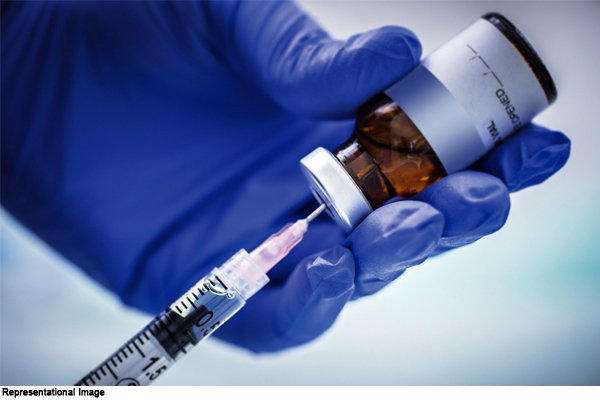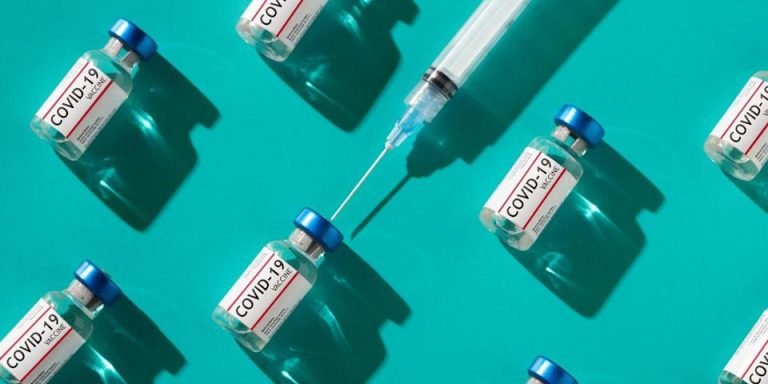The CDC and FDA say that boosters, when authorized, are a must-have for Americans over 65 and people with certain health conditions. Though Official guidance on booster shots is yet to come.

New data shows that a booster increases the efficacy of the Johnson & Johnson vaccine, but as with Pfizer and Moderna Vaccine, these boosters are not yet authorized.
On August 18, the Centers for Disease Control and Prevention (CDC) and the Food and Drug Administration (FDA) announced that all Americans receiving the two-dose mRNA COVID-19 vaccine were eight days after receiving the second dose. A month later you should get a booster shot. This also included people who had received either Pfizer-BioNTech or Moderna vaccines, and were told the boosters would be available in September.
But at the time, neither the CDC’s Advisory Committee on Immunization Practices (ACIP) nor the FDA officially authorized booster shots for Americans age 12 and older. After meeting last week, an FDA advisory panel voted that only Americans 65 and older, or who have certain underlying health conditions, should get a booster shot at this time. The reason, the panel members said, is that there is not yet enough evidence to recommend boosters for younger, healthier people. “The FDA has not taken action to formally issue an emergency use authorization,” explains William Schaffner, M.D., an infectious disease specialist and professor at Vanderbilt University School of Medicine. Meaning, nothing is official—for anyone—as of now.
The ACIP is scheduled to meet on the subject on September 22 and vote on September 23—but they won’t be able to vote until formal action is taken from the FDA, Dr. Schaffner explains. “It’s confusing for people and it’s a confusing process,” he says.
On Sunday, Anthony Fauci, the director of the National Institute of Allergy and Infectious Diseases, urged people not to get booster shots of the COVID-19 vaccine before and eight months after receiving a booster shot. Irrespective of the original message. Second dose of mRNA vaccine. “I think people aren’t understanding the difference between planning for something and really what element of it, what proportion of it, you’re actually going to roll out,” he said on NBC’s Meet the Press. . “And that’s exactly what happened.”
Booster shots for the mRNA vaccine—Pfizer and Moderna—have received a lot of attention, but a previously issued joint statement by the CDC and FDA also said that people who have received the single-dose Johnson & Johnson vaccine should Will also need additional shots. , pending the results of the company’s two-dose clinical trial. Now that data has been released.
Johnson & Johnson announced Tuesday that a phase III clinical trial found that two doses of its vaccine provided patients with 94% efficacy against mild to severe forms of COVID-19 and 100% efficacy against severe forms of the virus. Of. Worth noting: This doesn’t mean you should be looking for booster doses of Johnson & Johnson vaccine just yet — government agencies have yet to review the data or authorize those boosters.
So when will you actually be able to get one? And how do they work? We asked doctors to explain why a booster dose may be necessary in the future—as well as why you should get your first dose of vaccine as soon as possible if you haven’t been vaccinated yet.
Back Up: How Do Booster Shots Work for Vaccines?
“For some vaccines, after a while, immunity begins to decline,” the CDC explains. “At that point, a ‘booster’ dose is needed to bring the immunity level back up.” Booster shots are additional doses of vaccine administered shortly after an initial dose is received, which revs up your body’s immune response.
Some boosters are rarely recommended, such as one for tetanus, which must be received every decade. Others, such as the annual flu vaccine, are more frequent due to factors such as mutating pathogens and decreased immunity. Different types of flu viruses circulate each year, making an annual shot necessary each flu season to protect against the most prominent strains.
SARS-CoV-2, the virus that causes COVID-19, is also mutating, and currently of most concern is Delta, which was first detected in India last December. So far, all available COVID-19 vaccines, especially the mRNA ones, seem to provide adequate protection from the delta variant.
Will you need a COVID-19 vaccine booster shot for complete protection?
“At some point, most of us will need a booster,” Dr. Schaffner says. “It happens with a lot of adult vaccinations, including the flu vaccine.”
However, COVID-19 vaccines have only been widely available since December 2020, and data is still being collected about how long protection from the vaccines will last.
“There has been a feeling that the administration has been very impressed by the data from Israel, which shows that immunity is declining,” Dr. Schaffner says. The country has seen initial success in giving a third dose to some of its residents, which may have provided the impetus for booster approval by the CDC and FDA.
There are different strategies to deal with the different types, which are now fueling the country’s surge in cases, said infectious disease specialist Amesh A. Adalja, senior scholar at the Johns Hopkins Center for Health Security, M.D. telling. “One is to improve the vaccine, and the other is to add another booster with the same formulation,” he explains. Making the booster can increase antibodies and T cells (a type of white blood cell that is an essential part of your immune system) enough to help combat the types of the original, major SARS-CoV-2 strain. “The COVID-19 vaccine may eventually become like the annual flu vaccine,” he says.
Why may boosters be necessary after eight months?
“Available data make it very clear that protection against SARS-CoV-2 infection begins to decline over time after the initial dose of vaccination, and with the dominance of the delta variant, we are starting to see evidence of reduced protection against mild Huh. and moderate disease,” the CDC and FDA said in a joint statement.
“Based on our latest assessment, the current protection against serious illness, hospitalization and death may decrease in the coming months, particularly in those who are at higher risk or during the earlier phases of the vaccination rollout.” was imposed,” the announcement continues. “For this reason, we conclude that a booster shot will be needed to maximize vaccine-induced protection and increase its durability.”
For example, a small study of public health data from Israel released in late July estimated that the Pfizer-BioNTech shot was 39% effective in protecting people from COVID-19 infection in June and early July. , while it was 95% from January to early April. . That said, the vaccine was still more than 90% effective at preventing severe disease in people in June and July.
“It’s true that if you look at the levels of antibodies produced by the vaccine, by eight months, they start to drop,” Dr. Schaffner says. “But antibody levels are an accurate indicator of protection, and other aspects of protection are ongoing.” (This includes those aforementioned T cells.)
That said, there have been signs that security is still better than expected. In a June 2021 study published in the journal Nature, researchers found that mRNA vaccines trigger an immune response that can provide years of protection against SARS-CoV-2.
US There are still many people in the U.S. who need to receive even their first dose of the COVID-19 vaccine, although there is ample supply available. “The priority should still be to get people vaccinated with the original vaccine, which has an impact on all forms when it matters — serious illness, hospitalization, and death,” Dr. Adalja says.
For the booster shots right now, Dr. Schaffner recommends sitting tight. “For the time being, hang out—we’ll get some clarification soon,” he says, before the FDA would have to separately authorize booster shots for each vaccine. “The first recommendation would be to do it with just the Pfizer booster shots, then Moderna and then Johnson & Johnson would come,” he says.
When do you need a booster shot? It is unknown at this time. “It is not clear whether everyone will need a booster, but in the future it is a possibility – it will be based on erosion of protection against serious disease, something that is not happening in the general population yet,” said Dr. Adalja says.
However, as the COVID-19 pandemic rapidly evolves and the scientific community’s understanding of the novel coronavirus develops, some information may have changed since it was last updated. While we aim to keep all of our stories up to date, please visit online resources provided by CDC, WHO and your local public health department to stay up to date with the latest news. Always talk to your doctor for professional medical advice.

